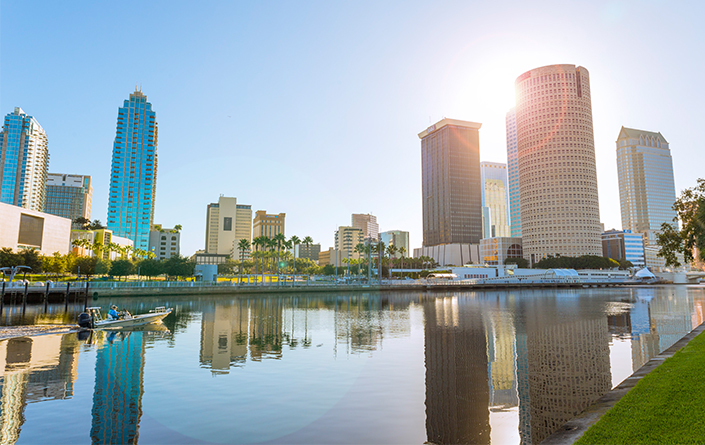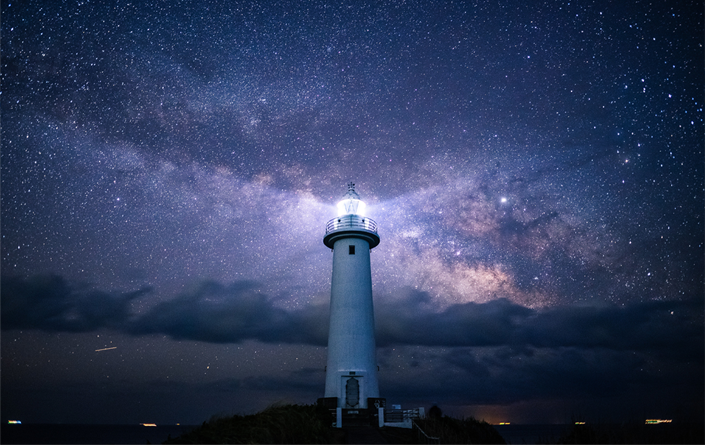Sustainable Leadership: The Rainforest Perspective
- If future leaders are to address climate change, one of the most critical issues of our time, they must embrace a shift to strong sustainability.
- At Fundação Getulio Vargas, students hear Indigenous leaders speak about the importance of the Amazon for combating climate change.
- Through reflective exercises, students develop expanded visions of sustainability and formulate new concepts of what it means to be a leader.
The Amazon rainforest plays a central role in regulating the world’s climate. Besides retaining and storing tons of carbon, its trees are a gigantic source of water vapor for the global atmosphere. These channels of water vapor, formed by the transpiration of the forest (evapotranspiration), are known as “flying rivers.” They have a direct impact on the rainfall regime that irrigates a large part of Brazil and South America.
For these and many other reasons, programs that develop leaders in sustainability should necessarily go through the Amazon territory. An immersion in the Amazon ecosystem allows future managers to experience and understand the complexity and the diversity of the forest in terms of landscapes, people, cultures, and ways of living—and, yes, ways of leading.
Just as important, learning about the Amazon can help business students master the concept of strong sustainability as opposed to weak sustainability. Weak sustainability assumes that there is no difference between manmade and natural capital, and that one can be swapped out for the other and generate the same level of well-being. By contrast, strong sustainability positions the economy as a subsystem of society and not the other way around. In this model, nature imposes limits on economic activities through planetary boundaries. If these boundaries are crossed by manmade activity, catastrophic climate change can result.
Humans must embrace a paradigm shift to strong sustainability if society is going to face the climate crisis with bold and effective solutions. However, accomplishing such a change in thinking is not a trivial task. At the Center for Sustainability Studies (FGVces) of Fundação Getulio Vargas’s São Paulo School of Business Administration (FGV EAESP) in Brazil, we are focused on achieving this goal.
Leaders From the Amazon
Since 2020, we have given business students the opportunity to learn from the Amazon through a for-credit course called Sustainable Leadership: The Rainforest Perspective. The course is available to MBA students around the world through our membership in the Global Network for Advanced Management, which connects 32 business schools from diverse regions, countries, cultures, and economies.
The weeklong course is taught by Fernanda Carreira and Daniela Gomes Pinto, two of the co-authors of this article. Both are researchers at FGVces who also work on sustainability projects within the Amazon and with companies. Instead of approaching stakeholder management from a business perspective, the course looks at the different ways that people have an impact on and are impacted by the land itself. Participants also study systemic alternatives that can drive the paradigm shifts that lead to social justice, prosperity, and environmental conservation.
The class is taught through a mix of dialogue, group work, and hands-on activities. One of the unique aspects of the course is that it gives students an opportunity to listen and talk to diverse local community leaders in Brazil, as well as specialists in sustainability science. These interactions have generated a great deal of engagement between students and local leaders.
Humans must embrace a paradigm shift to strong sustainability if society is going to face the climate crisis with bold and effective solutions.
In our most recent edition of the course, we provided contact with exclusively female leaders, who spoke about climate change and the Amazon’s important role in combating the problem on a global scale. The students listened, asked questions, and sought to establish connections between the Amazon and their home countries.
These moments give many students their first glimpses into other ways to lead—ways that seem surprising, unusual, and atypical. For instance, one student recently drew the conclusion that it takes “courage” to lead a sustainability impact project. This is not a skill business schools usually list as an essential leadership trait.
Another important aspect of the course is that it provides students with time for self-observation and self-reflection as they think critically about sustainable development. For instance, after participants hear from native speakers, they conduct research and reflect on how the climate emergency has been tackled by their own governments, what the existing public policies are, and how individuals and companies are addressing the problem.
During these reflection exercises, they are invited to deeply question their conceptions of sustainable development and the practices that exist in the world today. They are also asked to consider what it means to be a leader for sustainability. They review the way their knowledge and experiences have reshaped their previous conceptions and attitudes. It is a very rich moment when they begin to consider what has emerged in place of their old values.
This critical deep dive into their values paves the way for students to experience the desired paradigm shift. We hope they will commit themselves to working for an inclusive and sustainable economy while seeking innovative solutions to increasingly complex socioeconomic issues.
Opportunities Online and in Person
So far, we have offered the course three times: in June and October of 2021 and March of 2022. Each class has attracted about 20 students for a total of 70 over the three editions. Students have come from schools in Mexico, the U.S., Nigeria, Spain, India, Chile, Canada, Australia, Japan, and China.
Up until this point, due to COVID-19, we have held the class online. Obviously, exploring the Amazon virtually and from a distance presents huge limitations. However, even held online, the course has managed to circumvent some barriers and provoke enchantment.
The online experience is based on a rich set of images, which reveal the multiple faces of the Amazon. The guided tour begins by presenting mythical images of the forest before gradually unveiling aspects of the region that are lesser-known to foreign audiences. Students learn that the Amazon is not restricted to the forest and to the Indigenous people. The territory is full of culture, which students experience through videos that feature traditional dances, musicians, and popular festivals.
There are many visions of and desires for the future of the Amazon. Keeping the forest standing is not incompatible with economic development.
In October 2022, we intend to offer the course as a weeklong in-person experience. Five days will be spent on boats sailing along the Tapajós River and visiting communities along the way. We know that the chance to be present in such an unfamiliar territory can be transformative for students, because we have offered similar programs in the past.
For instance, in 2019, FGVces partnered with Zeppelin University in Friedrichshafen, Germany, for a cross-cultural expedition in the Tapajós region in the Brazilian state of Pará. In a video about the trip, students from both schools describe their reactions to the journey, which allowed them to view business problems through new windows of knowledge. They were able to reflect on their assumptions about the world and learn to understand “the other” as both human and nonhuman beings.
‘An Expanded Vision of Sustainability’
Through our Sustainable Leadership course, we hope students will come to an understanding of the Amazon and its place in the world. This region offers great opportunities, and there are many visions of and desires for its future. Keeping the forest standing is not incompatible with economic development. For instance, in 2022, our class discussed the burgeoning field of bioeconomics, which seeks to consider how humans can use natural systems without destroying them.
Just as important, we hope students will come away with an expanded vision of sustainability, having been challenged to rethink the prevailing paradigm. We want them to formulate new concepts of what it means to be a leader and how they can conduct conversations and undertake transformative projects in the organizations where they work. By the end of class, we expect that students also will have developed the ability to do the following tasks:
- Identify how the decisions and actions of individuals, public institutions, private companies, and nongovernmental organizations have impacted and influenced local and global sustainability.
- Understand and revise sustainable development concepts, connecting them with other business disciplines.
- Understand the importance of articulating goals and participating in dialogue as different actors search for ways to converge their interests.
- Incorporate sustainability into their reflections and practical actions.
- Observe and understand different perspectives of leadership, while conceptualizing what it means to lead for sustainability.
Two Journeys
In our three offerings of the Sustainable Leadership course so far, we have seen how each student’s journey through the Amazon also has inspired a journey of self-discovery. Participants report profound changes in the way they view the world—and themselves. They have begun to see themselves as leaders in training who will be capable of facing the complex challenges that lie ahead. Such reactions demonstrate the critical role that business schools can play in addressing climate change, the most serious crisis of our time.
At FGVces, we believe that there is great value in viewing all the scientific knowledge about climate change through the lens of the Amazon and in the context of strong sustainability. Through such an approach, we believe we will be able to train leaders who have grand ambitions and the capacity to promote significant change in their own organizations—and throughout society.





